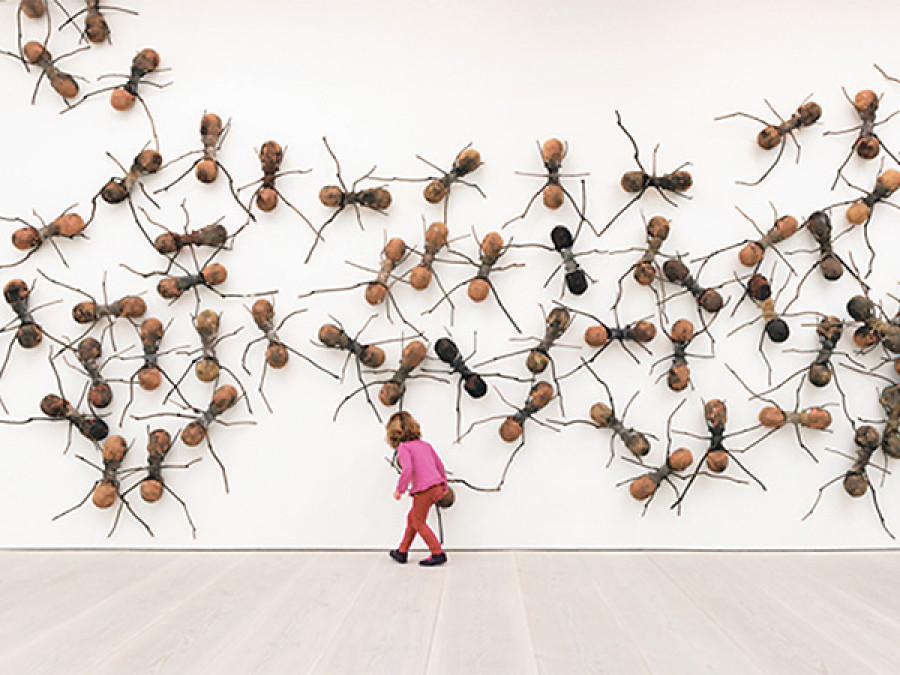Entertainment
Why we need the arts in our schools
There is an enormous lack of access to learning on any subject outside of the strict, very narrow textbooks that most children, even in the Valley, have access to via their schools
Sophia Pande
Having grown up myself in the school system here, until the SLC level, I can testify to the enormous lack of access to learning on any subject outside of the strict, very narrow textbooks that most children, even in the Valley, have access to via their schools.
We did not learn very much world history; our geography lessons insisted on our memorising maps along with retaining names of capital cities. Economics was insisted on, but never developmental economics (which would make sense in a country such as ours).Our Nepali lessons were decent but often incomprehensible because the literature was so dense and the teachers did not provide us with an access point into the rich, verbal imagery. English lessons for the SLC level consisted of memorising the basic text, verbatim, out of the two required books, and then regurgitating the words onto paper if one had any hope of getting anything above 60 (out of a 100) points, no matter how perfectly one had recreated the books onto the exam paper.
Science lessons were okay, though perhaps unnecessarily focused on one’s ability to draw diagrams well; and to someone like me, the optional mathematics (that ironically one had to take) was incomprehensibly difficult for a 16 year old girl who didn’t understand why she had to memorise theorems that would never serve her practically unless she wanted to calculate the height of far away mountains from where she was sitting.
My rant is not unfamiliar to students who grew up here and then went abroad at some point for higher education. Budhanilkantha School, from where I took my SLC exams, was one of the best schools in the country, (so think for a moment about the hundreds of thousands of kids in Nepal who don’t have access to decent schools nor teachers); but even there, the disproportionate emphases on rote learning, mathematics, and the sciences by the school system left me unequipped to read critically, think my thoughts through, and put them on paper in a logical manner—especially in longer form essays that required independent academic research.
As for the arts, well, I knew nothing either about Western or Eastern art practices and traditions, having not even been educated about the rich heritage at our doorsteps, living in the Kathmandu Valley, surrounded by the living medieval Newar cities that could have informed any student in the appreciation of aesthetics in both art and architecture, had we been so instructed.
Perhaps I am voicing the obvious in advocating for the necessity of basic arts education in our schools. Alain de Botton, who is also often accused of writing what ought to be apparent, states in his book Art as Therapy (written in conjunction with the art historian John Armstrong) that engagement with art can help us move towards self understanding and honing our abilities to express ourselves more clearly, something a good education should absolutely aspire to do. In a rather lengthy but relevant excerpt from the aforementioned book de Botton writes:
We are not transparent to ourselves. We have intuitions, suspicions, hunches, vague musings, and strangely mixed emotions, all of which resist simple definition. We have moods, but we don’t really know them.
Then, from time to time, we encounter works of art that seem to latch on to something we have felt but never recognized clearly before. Alexander Pope identified a central function of poetry as taking thoughts we experience half-formed and giving them clear expression: “what was often thought, but ne’er so well expressed.” In other words, a fugitive and elusive part of our own thinking, our own experience, is taken up, edited, and returned to us better than it was before, so that we feel, at last, that we know ourselves more clearly.
So if we are to accept this rather lofty premise that art can make our lives immeasurably better by allowing us to access our emotions, channel them, and then refine and define them, then we are bound to work towards pushing for greater engagement in the arts for our school children. It will help them learn these skills better and ensure that perhaps learning is not as tedious as it was for us, opening up worlds of possibilities and expanding horizons at a crucial age.




 16.12°C Kathmandu
16.12°C Kathmandu










